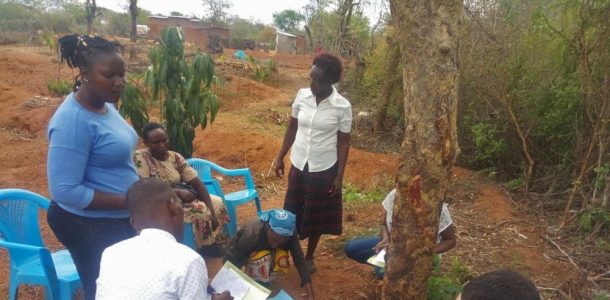Reflections from workshop participants and co-facilitators
By Matt Kandel1, Nancy Kadenyi2, Janet Musyoka3, Fiona Ngarachu4 and Vallary Mutave5Ngila
1 Research Fellow in Environmental Anthropology, University of Southampton, 2 Environmental Project Associate, MetaMeta Research’,3 MSc student in Geography, Kenyatta University, 4 MSc student in Geography, Kenyatta University, 5Research Fellow, Kenyatta University
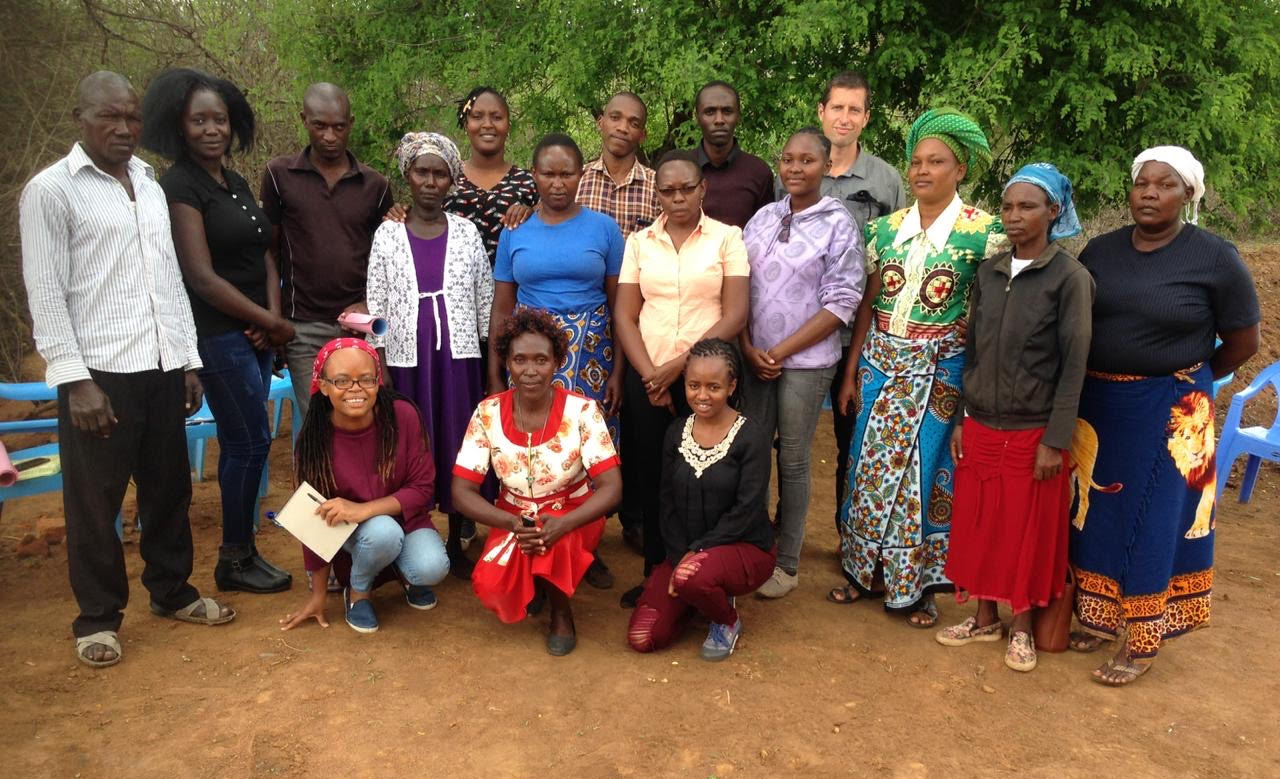
From 16th-20thOctober Matt Kandel (University of Southampton) and Fiona Ngarachu (Kenyatta University) co-facilitated a participatory research skills training workshop in Kitui County in Kenya. The workshop, which was funded by Building REsearch Capacity and sustainable water/food security in drylands of sub-Saharan Africa (BRECcIA, a UK Global Challenge Research Fund project), was linked to a Kandel- and Ngarachu-led research project that is investigating how differentiated access to resources impacts perceptions and adoptions rates of ecological restoration interventions. Workshop participants included natural scientist graduate students from Kenyatta University and Southeastern Kenya University (SEKU) as well as an employee from MetaMeta Research, an environmental NGO that is active in Kitui (see Figure 1).
The four-day training course combined in-class instruction with on-site training in a BRECcIA study community. A key learning objective was that participants will be able to critically analyse and discuss how local people perceive drivers of land degradation and opportunities for restoration. Another was that participants will successfully design and conduct focus group discussions and semi-structured interviews, including making use of participatory tools such as transect walks (see Figure 2), hazard/risk mapping, and seasonal calendars. For fieldwork the participants split into two groups of 3-4, with both groups having at least two members who were fluent speakers in Kikamba (the predominant local language in the area).
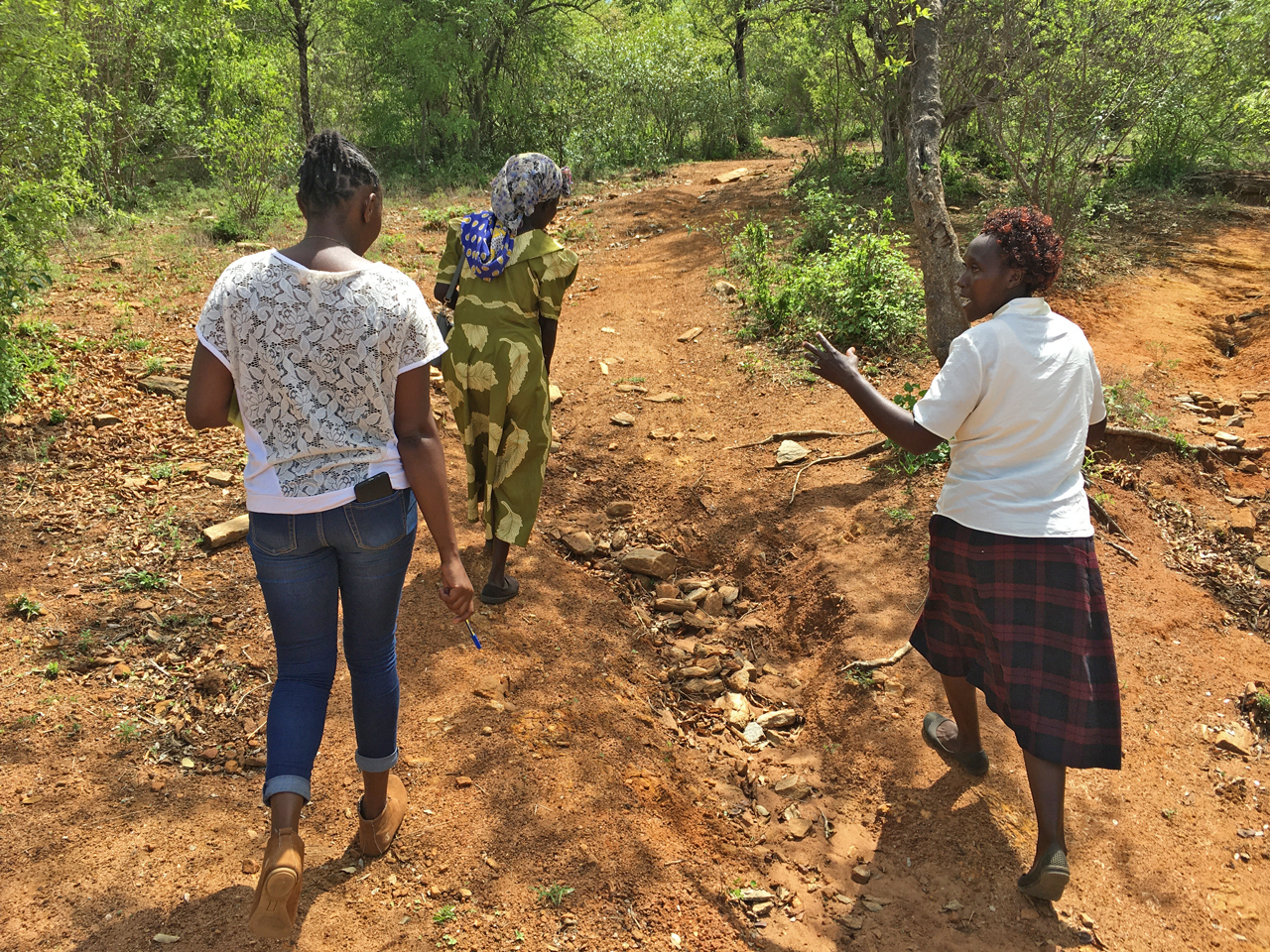
As an Environmental Project Associate for MetaMeta Research it was my pleasure to join BRECcIA’s workshop, which included field viisits to a community in Kitui Rural sub-county (Figure 3). In our focus group discussion the research participants used the seasonal calender exercise to dicuss with us how they make use of meterereological information to plan for their farming activities. I believe that when community partcipation is embraced in all the projects, we shall more effectively be able to achive the UN Sustainable Development Goals, particularly as they relate to food security and climate action.Since communities are the main beneficiaries, through involving them at the initial stages, different ideas will be shared, and the ideas can be used in the intended project activities. By using participatory approaches the community feels they are part of the project, thus a good relationship between the researcher and/or project implementation staff is developed from the outset.
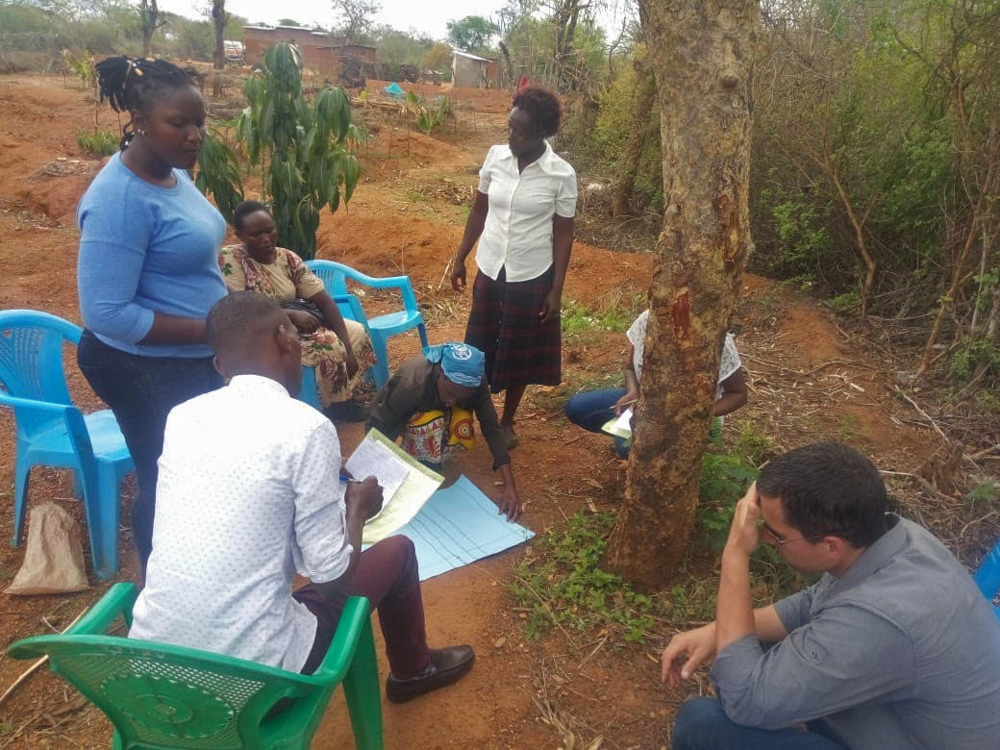
For me, key learnings from the training and moreso in the field include (1) Actively listen to the community, which will give them a chance to share their views and which will then assist in devloping a proper understanding of the community,(2) Stay close to the community you are working with, and (3) The community is more likely to accept the legitimacy of the research and buy into its findings if they know it was conducted by people like themselves. I believe participatory research will assist greatly in achieving the SDGs and Kenya’s Big Four Agenda.
As a Masters student in Geography (at Kenyatta University) I had not yet had the opportunity to attend classes in co-designing and co-producing research. This workshop therefore was of significant benefit to me. In addition, through the workshop I acquired interviewing techniques for attaining relevant local knowledge. Fieldwork provided me with the opportunity to practice participatory research skills and field note taking. We also learned about land restoration activities carried out by farmers. The workshop was educative and amazing, and the participatory research skills I acquired were especially enlightening given that I come from a natural science background. These skills will be useful when undertaking projects with stakeholders and local communities in my future work. The networks built during the workshop will be important for future consultation and collaborations.
Similarly (and also writing as a Masters student in Geography at Kenyatta University) I agree that there was great value in building researcher, community and development networks through this workshop. Sharing the ideas on how we can involve the community in solving problems facing them as well as learning more from the farmers was a key takeaway for me. I learned that we should not rely only on expert knowledge since also the locals, through indigenous knowledge, have their knowledge that they normally use and they believe in it. Given that my field of career lies in watershed management, this workshop has strengthened my skills and knowledge in involving the citizens in different matters concerning the watershed health. The community participation is very important since it encourages accountability and this leads to solving of problems within the watershed.
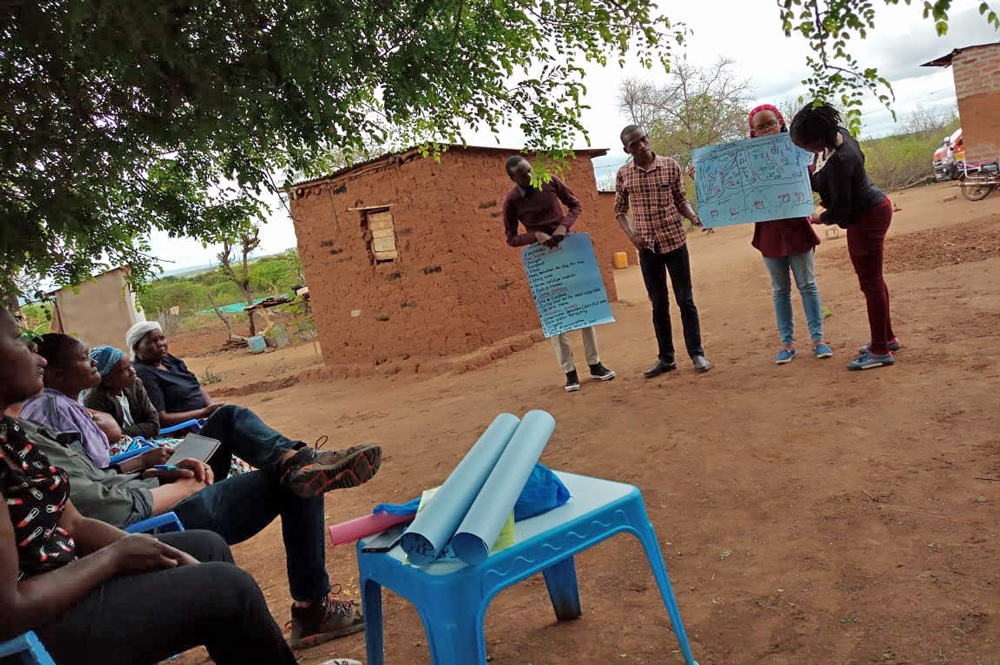
On the third day of the workshop the participants returned to the community to share their analysis and interpretation of data from the focus group discussions (see Figure 4). Group discussions, which included valuable feedback from community participants on the findings, then followed the presentations. The group discussion format also allowed for joint reflections on the effectiveness of ecological restoration interventions for improving food security (as well as for mitigating against plant pest and crops disease) in dryland contexts such as Kitui. Key points raised in these discussions will be further explored through BRECcIA community-based approaches as well as reflected on within the wider context of dryland ecological restoration.

